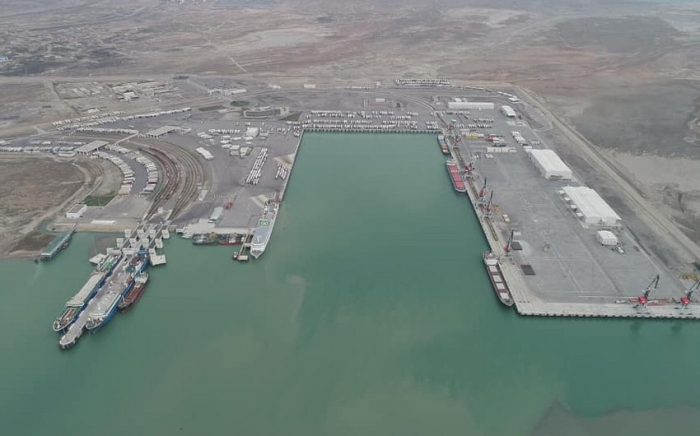Ecologists warn that the decline in the Caspian Sea’s water level will seriously affect coastal zones, the oil industry and shipping. Ships approach ports through special channels, as the sea level drops, more difficult problems will appear. Thus, the future operation of ports built for millions is also at risk.
The Port of Baku, located at the intersection of the East-West and North-South corridors, is considered the largest and most significant port in the Caspian Sea. The location helps the port to achieve its goals, play an important role in regional and global supply chains as a hub where the main railway and trunk networks of Azerbaijan converge.
What steps are being to avoid possible future problems in case the Caspian Sea will shrink as predicted?
Elmar Habibli, spokesperson for the Baku International Sea Trade Port CJSC, told AzVision.az that the situation related to the decrease in the water level in the Caspian Sea does not prevent the Port of Baku from operating as usual.
“The current depth in the basin of the Port of Baku (Alat Port), which is one of the most modern and deep ports of the Caspian Sea, fully corresponds to the movement in the water of ships navigating the sea and carrying the majority of land cargo. In the port, using the most modern instruments, the water depth is regularly measured and appropriate work is carried out,” he said.
Habibli noted that in the future, work may be carried out to deepen the bottom if the decrease in the water level causes any problems. However, today there is no such problem.
More about: Caspian-Sea
















































